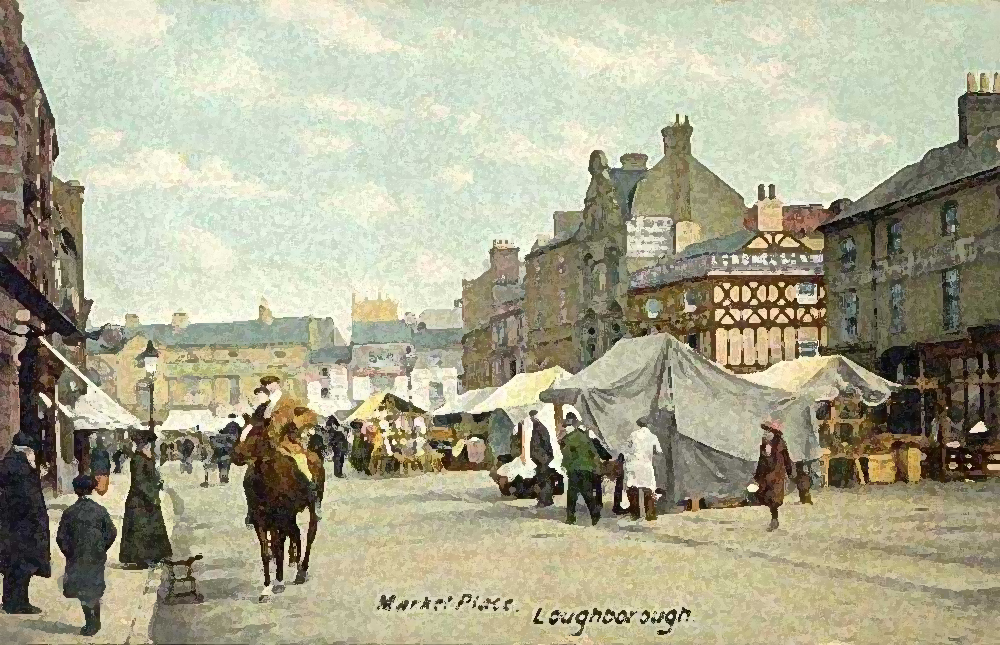Loughborough
Loughborough or 'Lucteburne' meaning 'fortified house of a man called Luhhede' is thought to have developed in Anglo Saxon times around the Woodbrook.

County: Leicestershire
Population (2001): 57,626
The Domesday Book recorded forty houses, a manor and a population of 176 in the settlement. Following the Norman Conquest, Hugh Lupus, Earl of Chester and nephew of William the Conqueror held the manor. A weekly market and two annual fairs were established in the thirteenth century. In 1326 the manor passed to the Beaumont family and was kept by them until 1507.
By 1564 Loughborough had grown in size to 256 houses. The continued expansion of the settlement was slowed by the outbreak of plague on a number of occasions between 1545 and 1648. In the worst years 1558-9, 1609-11, 1631 burial figures of 332, 603 and 167 respectively were recorded. The residents of Loughborough suffered a further setback in 1622 when fire swept through the town.
During the seventeenth century Loughborough's market town economy was boosted by the introduction of framework knitting. Parish registers first mention the term framework knitter in 1687. Many people prospered from the industry and enjoyed relatively high rates of income compared with other industries. A downturn in demand for stockings during the early nineteenth century created a shortage of work and strained relations between knitters and hosiers. The tension eventually led to a series of East Midlands-wide Luddite attacks between 1811 and 1817. Rioters broke into houses, smashed frames and damaged properties owned by hosiers. Loughborough remained free of any disturbances until the night of 28 June 1816 when John Heathcoat's factory was attacked. A total of 55 frames was destroyed in the attack and the production capacity of the factory was destroyed. Heathcoat subsequently decided to relocate his firm to the South West to escape the Luddites.
Loughborough's knitting industry recovered from the downturn and a new sector developed producing knitting machines. Arthur Paget and William Cotton both developed fully-fashioned knitting machines in the town and exported them worldwide. The town's three railway stations (The Midland Railway, the London and North-Western Railway, and The Great Central Railway) provided local industry with important transport links to cities and ports across the country.
The growing Victorian economy provided new opportunities for firms to establish and sell new technologies to the population. Towards the end of the nineteenth century Brush Electrical Machines was founded and a base opened in Loughborough. The company has since supplied a range of equipment to power producers and marine carriers across the world. Ladybird books is another well known company with links to the town. Wills & Hepworth, a Loughborough printing firm, registered the Ladybird logo in 1915 and began to produce books for children. The company eventually changed its name to Ladybird Books in 1971, but since being integrated into the Penguin Group it has relocated away from Loughborough.
During the past century the town has gained a reputation for housing high -tech industries. Loughborough College established a technical institute and later went on to become Loughborough University of Technology. 3M Health Care's European headquarters for its pharmaceutical operations is based in Morley Street and a further manufacturing plant is located on Derby Road. AstraZeneca, another leading pharmaceutical company, has also established a research and development 'centre of excellence' in Loughborough.